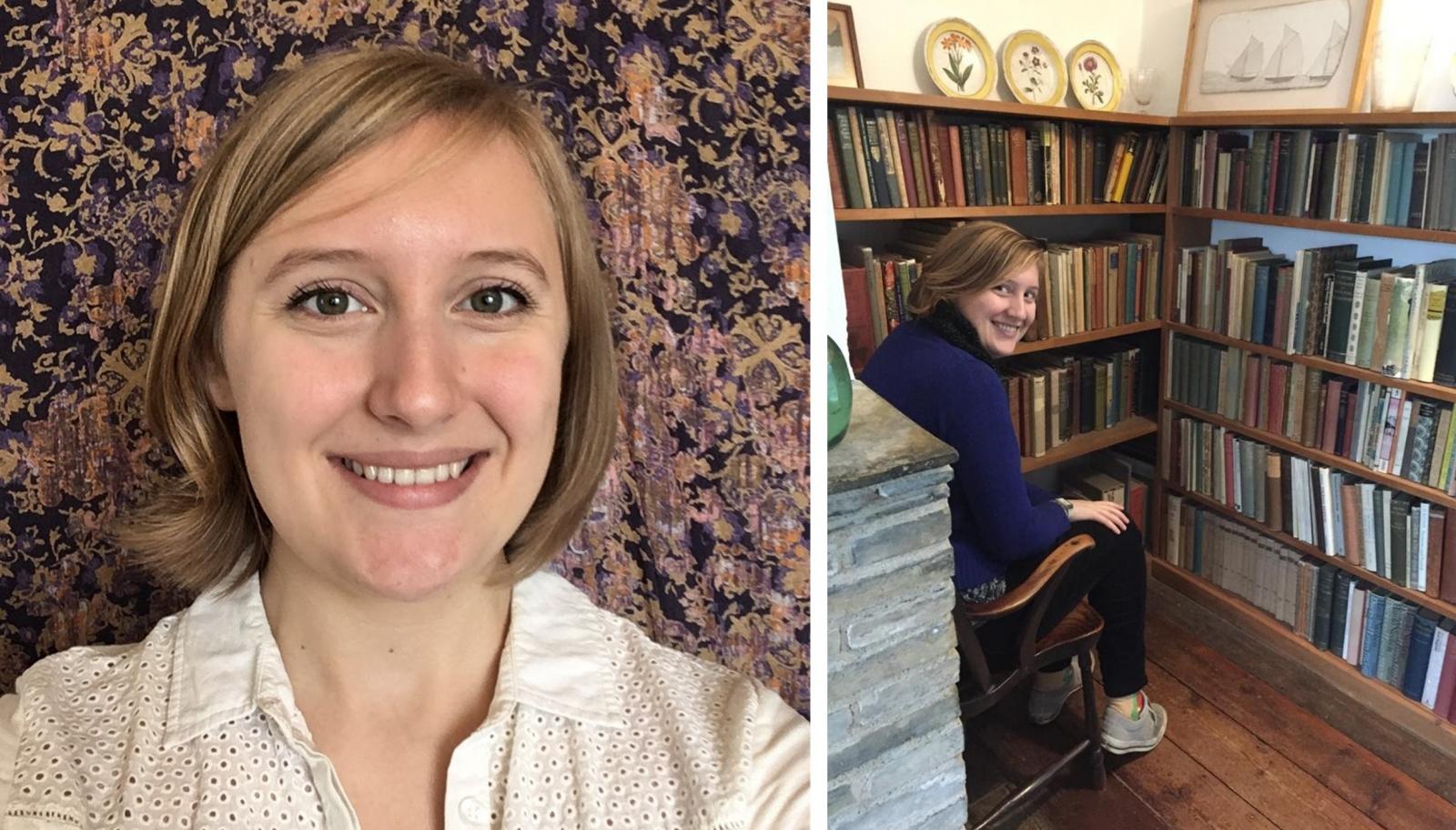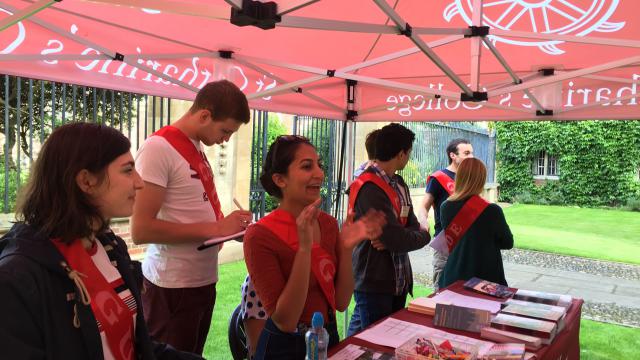
Name: Ellamae Lepper
Hometown: Bristol, UK
Extracurricular interests: Learning to play the guitar, live music, cooking
Postgraduate degree: PhD in 19th century French literature
Undergraduate life at Catz
"I studied Modern and Medieval Languages at Catz as an undergraduate, specialising in French with ab initio Russian. I initially applied to Catz because it was centrally located, and seemed to balance a proud history with a laid back and friendly culture. My time at Catz has been very happy so I feel I definitely made the right choice.
"When it came to picking a College for my Master’s degree and most recently my PhD, there was a temptation to experience other Cambridge Colleges but I feel a definite sense of belonging at Catz that I didn’t want to give up."
Postgraduate life at Catz
"The financial support available through the College’s postgraduate bursary was vital during my Master’s, and without it I might have not been able to pursue postgraduate studies. This provided a springboard for applying for a PhD and being considered for the Harding Distinguished Postgraduate Scholars Programme.
"I’ve enjoyed being able to maintain friendships and extend my network at Catz, thanks to the social activities organised by the postgraduate representatives (known as the MCR Committee). I’ve missed the bigger events that have been restricted during the pandemic, but the small group activities have been a fun new way to get to know people.
"I no longer live in College-owned accommodation but Catz is a place I can always go to work, for mealtimes or for support. It helps to have this sense of belonging and community during the ups and downs of postgraduate life."
Postgraduate studies
"My PhD research explores fictional depictions of salons – regular elite social gatherings hosted by notable women – in the nineteenth century. The “golden age” of French salon culture is usually agreed to have ended with the 1789 Revolution; but the ideal of the salon remained a prominent cultural reference point long after this decline. My project explores how and why novelists continued to write about salons after 1800 – probing issues of cultural memory, intertextuality, gender, and power within the French novel.
"It has definitely been strange to work on texts about social gatherings during a pandemic. I didn’t know when applying for a PhD that it would be impossible to bring people together in a room by the time I started! The salon ideal of mixing different friends together for harmonious conversational exchange has been particularly tantalising in recent months…"
The Harding Distinguished Postgraduate Scholars Programme
"It was amazing to learn that my PhD would be fully funded thanks to the programme – it is a weight off my shoulders as I can focus entirely on my studies rather than applying for different pots of funding at each step of my research.
"In addition, the generous research allowance has given me peace of mind: I can be certain that I will be able to plan research trips to France or attend upcoming conferences, because I know the funding is already there for these important ad hoc expenses.
"I also want to commend the Harding Scholars committee and in particular the social representatives who have done a great job of organising activities so that scholars from different Cambridge Colleges can interact and get to know each other."
Advice for undergraduates thinking of applying for postgraduate studies
"Don’t be afraid to take a break from university! I had some time away from academia after my undergraduate degree, working at an educational publisher in London. The experience helped me make an informed decision about whether postgraduate study was right for me, and it gave me new skills and life experiences that have made me a better student in terms of how I organise myself and interact with others.
"I’d also recommend starting to think about your postgraduate options early. Of course, you don’t have to commit or make any decisions before you are ready, but if you are considering a Master’s or PhD then it helps to do some groundwork in your final undergraduate year: start to think about the topics that you find most interesting, and which academics you could talk to for advice and recommendations. It will also help to get an idea of what grades you need for a successful application. Ultimately, if you build towards it slowly over time, you’ll stand more chance of having a strong application."





